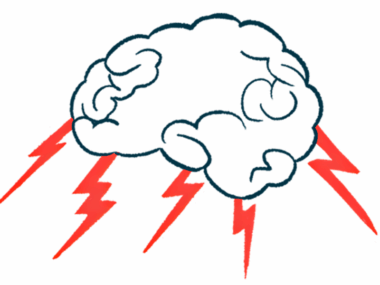Acute kidney injury raises risk of dementia, including in Parkinson’s
Knowing risk can lead to earlier intervention, preventive treatment, better care
Written by |

Having acute kidney injury increases the risk of developing dementia, including Parkinson’s disease with dementia, according to a study that suggests that people with kidney damage may benefit from close monitoring for early detection of cognitive decline.
“Identifying acute kidney injury as a risk factor for dementia can lead to earlier intervention, preventive treatment and better patient care,” Juan Jesus Carrero, PhD, a professor at the Karolinska Institutet in Sweden and the study’s lead, said in a news release.
The study, “Acute Kidney Injury and Its Association With Dementia and Specific Dementia Types Findings From a Population-Based Study in Sweden,” was published in Neurology.
Acute kidney injury occurs when the kidneys suddenly lose their ability to filter waste from the blood, which can cause harmful substances to build up in the body. Research has suggested that acute kidney injury can trigger changes in the brain that may result in dementia.
People with Parkinson’s disease may develop dementia, with symptoms that overlap with dementia with Lewy bodies, a form of dementia caused by toxic clumps of protein that build up in the brain. These clumps, called Lewy bodies, are also a hallmark feature of Parkinson’s disease.
A link between kidney injury, dementia
To look for a link between acute kidney injury and dementia, Carrero’s team drew on data from people ages 65 and older in Stockholm between 2006 and 2019. All were free from dementia at the start and had available data on their kidney function.
The researchers tracked episodes of acute kidney injury based on clinical diagnoses and changes in the levels of creatinine, a marker of kidney function, then followed the participants to see if they developed any form of dementia.
The study included 305,122 people with a mean age of 75. More than half (56.6%) were women. Over a median 12.3 years, 79,888 (26.2%) of them had at least one episode of acute kidney injury at a mean age of 77.
Over the same time, 47,938 (15.7%) received a diagnosis of dementia. After accounting for various factors, such as age and sex, an episode of acute kidney injury was linked to a 49% higher risk of developing dementia.
“Our findings suggest that [acute kidney injury] is not just an isolated event affecting kidney function, but may have broader implications, particularly for brain health,” said Hong Xu, MD, PhD, an assistant professor at the Karolinska Institutet and the study’s first author.
The risk was even higher for those with more severe kidney damage and for those who developed or received treatment for acute kidney injury while in the hospital. Having two or more episodes of acute kidney injury didn’t increase the risk of developing dementia, however.
An increased risk was observed across different forms of dementia, with the highest risk seen for dementia with Lewy bodies and Parkinson’s disease with dementia (88% higher), followed by vascular dementia (caused by reduced blood flow to the brain; 47% higher) and Alzheimer’s disease (31% higher).
When the researchers looked at how age affected the risk of developing dementia, they found that participants older than 85 were 4.15 times more likely to be diagnosed with dementia with Lewy bodies and Parkinson’s disease with dementia.
The underlying mechanisms aren’t understood, but people can develop severe autonomic dysfunction after acute kidney injury, which affects the control of blood pressure among other involuntary functions. This is also seen as part of the nonmotor symptoms in dementia with Lewy bodies and Parkinson’s disease.
“As a clinical application, this study thus identifies individuals with [acute kidney injury] as a population in which monitoring for dementia and potential preventive and therapeutic strategies may be indicated,” the researchers wrote.






